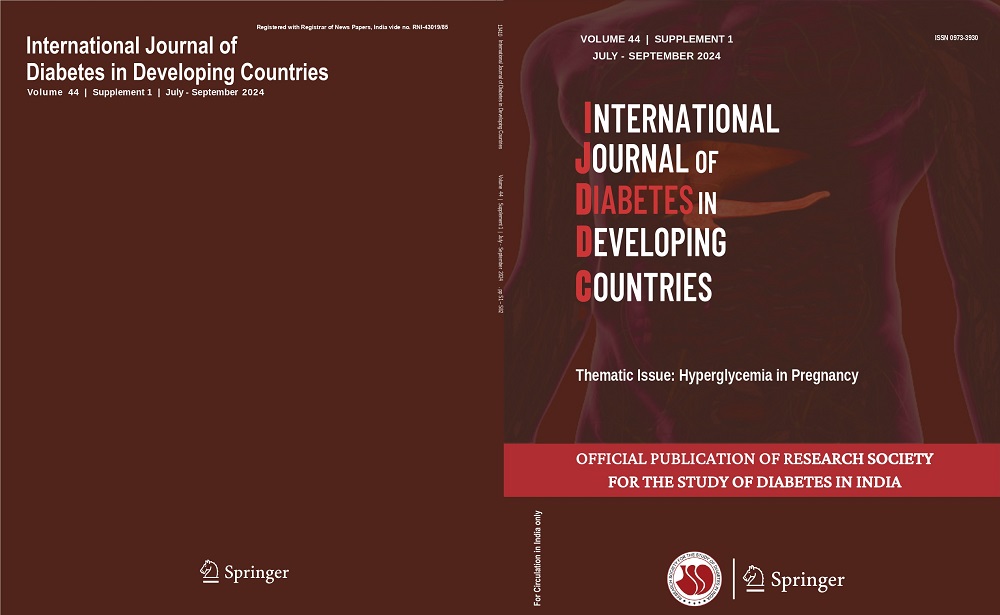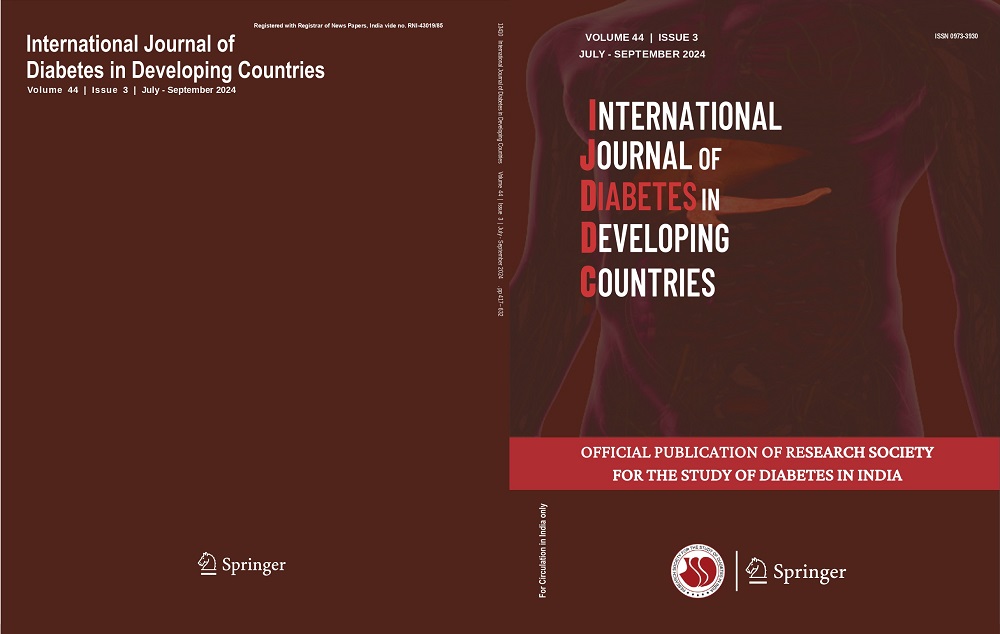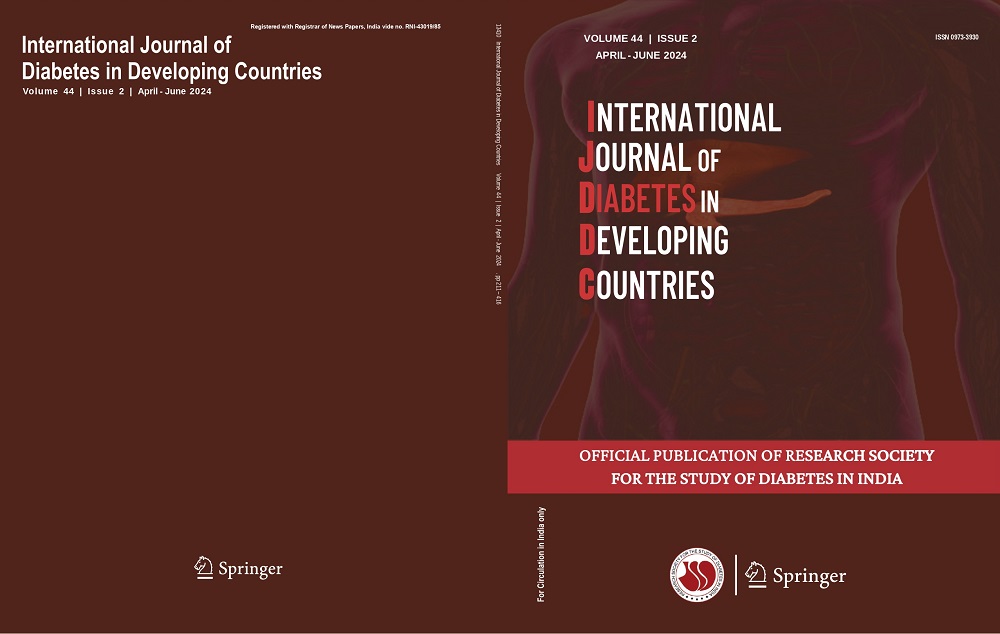Uchenna Cosmas Ugwu, Osmond Chukwuemeka Ene
Keywords
Gestational diabetes mellitus • KAP • Pregnant women • Sociodemographics • Cross-sectional design
Abstract
Background Gestational diabetes mellitus (GDM) is a serious threat to first-time pregnancy.
Objective To determine the knowledge, attitude, and practice (KAP) regarding gestational diabetes mellitus (GDM) among pregnant women on antenatal appointment in government approved healthcare facilities in Nigeria and also to establish the significant correlation and association within sociodemographic variables.
Methods It was a facility-based cross-sectional study, conducted in government-approved healthcare facilities in Nigeria, from January to March, 2023. A total of 1750 pregnant women were sampled and surveyed using convenient sampling technique. Data were collected using an adapted questionnaire “Gestational Diabetes Mellitus Knowledge, Attitude and Practice Questionnaire” with 0.87 reliability index. Statistical analysis was completed using IBM SPSS version 22. Frequency, percentage, odds ratio statistics, and chi-square test were applied for data analysis. All computations were deemed statistically significant at p value ≤ 0.05.
Results Out of 1750 eligible participants, 1488 (88.4%) valid responses were analyzed. The study showed that 69% knew about GDM, 65% had positive attitude, and 79% had desirable GDM practice. Statistically, there were strong correlation between KAP regarding GDM and age, marital status, education level, and parity status (odds ratio ≥ 1). Furthermore, the KAP regarding GDM was significantly associated with alcohol consumption, education, parity status, and resident (p value < 0.05), respectively.
Conclusion Approximately three-quarter of the pregnant women knew about GDM, had positive attitude, and had desirable GDM practice. The KAP regarding GDM was strongly correlated and significantly associated with sociodemographic variables. Facility-based interventions on KAP regarding GDM are paramount to be incorporated in the national health programs to improve knowledge and enhance attitude and GDM practices.




